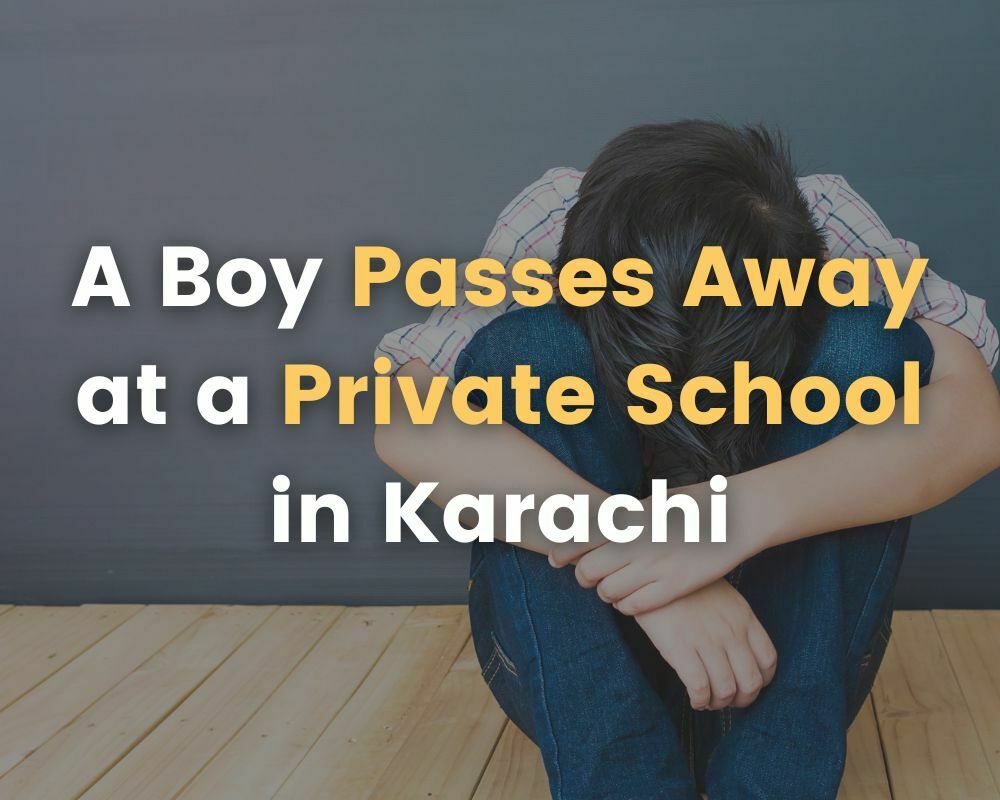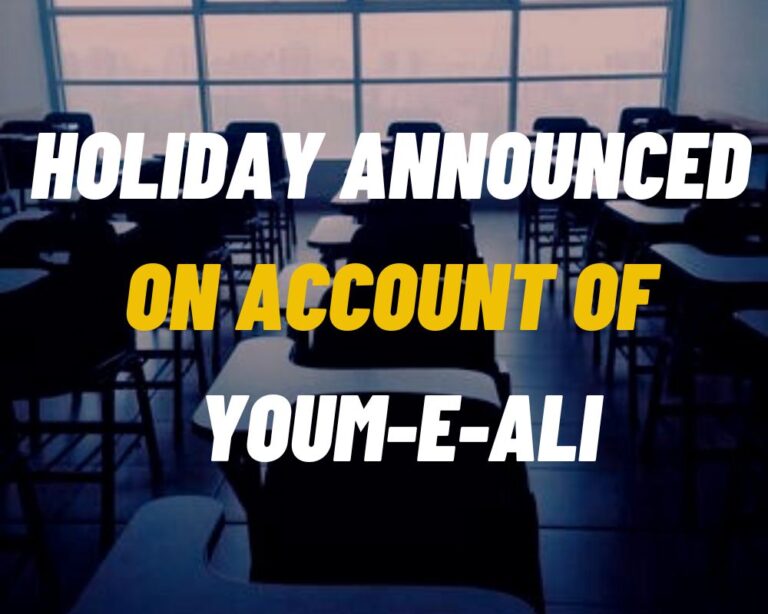The Boy Passes Away in Private Karachi School: Negligence or Accident

School life plays a significant role in the development of children and can have many positive impacts and benefits. However, tragic incidents can occur in schools, as was the case at the Smart School Model Colony franchise in Karachi, Pakistan, where a student passed away. The incident raises serious concerns about the school’s child safety and security measures.
According to sources, the school administration showed extreme negligence by failing to provide first aid and wasting time calling the boy’s parents, despite the incident’s controversy. The boy’s parents also question how glass could have hit their son and caused such severe injuries that he ultimately died while receiving treatment.
It is crucial for schools to prioritize the safety and security of their students by having proper procedures in place to prevent incidents like this from occurring. As parents, it is essential to investigate and research schools before admitting children. Here are some steps that parents can take to ensure their child’s safety:
- Research the school’s reputation and accreditation.
- Visit the school and assess its facilities and environment.
- Inquire about the school’s safety measures, emergency procedures, and child protection policies.
- Talk to other parents whose children attend the school to get their experiences and concerns.
- Trust your instincts if something seems off or raises a red flag during your research or visit.
By taking these steps, parents can make informed decisions about their child’s education and help prevent tragic incidents such as the one that happened recently at the Smart School Model Colony franchise in Karachi.
What is the SOP for Schools regarding Children’s Health and Safety in Pakistan?
Pakistan is a member of the UN and UNICEF and has committed to following international standards regarding children’s safety in schools. To this end, the United Nations International Strategy for Disaster Reduction (UNISDR) and the Global Alliance for Disaster Risk Reduction and Resilience in the Education Sector (GADRRRES) has developed the Comprehensive School Safety Framework (CSSF) as a globally relevant framework for disaster risk reduction and resilience in the education sector.
The CSSF aims to provide a comprehensive, multifaceted approach to reducing risks from all hazards threatening the education sector, including natural disasters, conflict, and health emergencies. The framework takes a child-centered, child-participatory approach to safety, with a focus on protecting learners, teaching and non-teaching staff from death, injury, and harm in school, planning for educational continuity in the face of all expected hazards and threats, safeguarding the education sector investments, and strengthening risk reduction and resilience through teaching, learning, and awareness-raising.
While Pakistan has committed to following these international standards, it is unclear from the passage how well the CSSF has been implemented in the country. It would be helpful to provide specific examples of how the CSSF has been applied in Pakistan and whether it has improved school safety.
It is worth noting that schools in Pakistan face a range of hazards and threats, including natural disasters such as floods and earthquakes, as well as ongoing conflict and health emergencies such as the COVID-19 pandemic. Ensuring the safety of children in these settings is crucial not only for their well-being but also for their education and future opportunities. By following international standards such as the CSSF, Pakistan can help protect its children and invest in their future.
Who is Responsible for the Children’s Safety at Schools as per NDMA Protocol?
| School Type | Primary Responsibility | Secondary Responsibility |
|---|---|---|
| Federal Government School | Federal Government Educational Institutions Directorate (FGEI) | Principal of the respective school |
| ICT School | Federal Directorate of Education | Principal of the respective school |
| Provincial Government School | Provincial Education Department (PED) District Education Officer (DEO) | Principal of the respective school |
| Private School | School Owner / School Management / Secretariat / Head Office | Principal of the respective school |
| Madrasa | Wifaq-ul-Madaris / Madrasa Owners / Management | Head of the Madrasa |
Conclusion:
The incident at The Smart School in Karachi is a tragic reminder of the importance of prioritizing the safety and well-being of students in schools. Schools must take proactive measures to prevent incidents like this from happening in the future, including implementing clear policies and procedures for responding to emergencies, conducting regular safety audits, prioritizing communication and transparency, and supporting students’ mental health and well-being. By working together to create safe and supportive school environments, we can ensure that all students have the opportunity to thrive and succeed.
Furthermore, it is essential for both the government and private schools to prioritize safety and well-being while also providing a nurturing environment for students to learn and grow. This incident has raised questions about the safety measures in place at schools and the responsibility of schools to ensure that students are protected from harm. Schools must implement comprehensive safety frameworks and educate their staff on emergency response procedures. The tragic incident at The Smart School in Karachi serves as a reminder that safety and well-being must be a top priority in all educational settings. By taking proactive measures and creating safe and supportive environments for students, we can ensure that tragedies like this never happen again.







